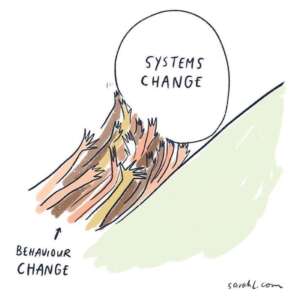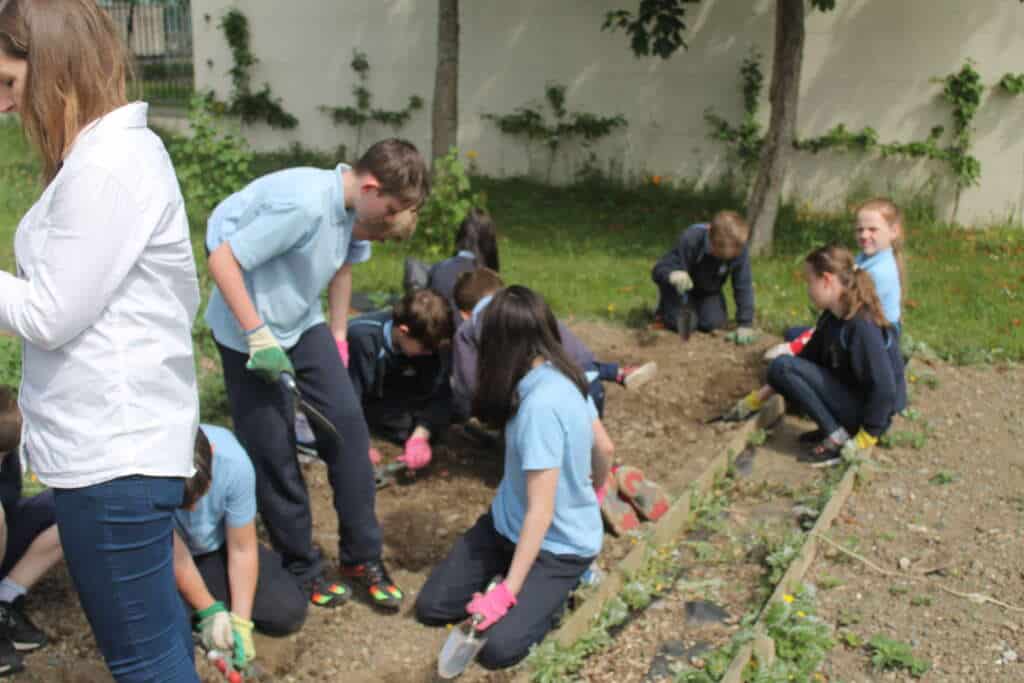Hans Zomer argues that it is time to take the science and practice of behavioural change seriously. When faced with society-wide challenges, it is important to highlight the actions of those who are willing and able to lead by example, generating the type of collective action that is central to systemic change.
After nearly two years of trying to come to terms with the Covid-19 pandemic, we have learned a lot about ourselves. We have had to come to terms with the devastating cost of the crisis, in terms of lives lost or forever changed, jobs lost, connections broken and homes wrecked by domestic violence.
But we have also learned that, contrary to what we have been led to believe by scores of apocalyptic films and books, crises tend to bring out the best in people. In the case of the Covid-19 pandemic, we have, by and large, distinguished ourselves by the solidarity, kindness and calmness with which we responded to the unprecedented changes to our lives.
In future years, when we look back at the Covid-19 pandemic, it is likely that we will highlight how we managed to create a crisis response in which the vast majority among us agreed on the urgency of the situation, and how we accepted dramatic changes to our lives in order to counter the threat. We shared a sense of urgency, we knew that a solution was possible, and we developed the trust that, if we all did our bit, we would solve the crisis together.
Related Article: GAP Ireland’s approach to Behaviour Change.
Urgency of the climate crisis
These elements are also going to prove crucial as we try to address that other crisis humanity is currently facing: climate chaos and extensive biodiversity loss.
As with the Covid-19 pandemic, climate change is affecting us all. And just as with Covid, our personal behaviour is going to determine, to a large degree, whether our response to the crisis will be successful. Importantly, however, and in contrast to the pandemic, not all of us are convinced of either the urgency of corrective action or that we are personally affected.
A recent international poll among citizens in 50 countries found that two-thirds of people said that climate change represents a “global emergency”. And a recent poll in Ireland found that 90% of respondents said that Ireland has a responsibility to act on climate change.
Crucially, however, polls, including recent work by The Good Information Project/Ireland Thinks, show that a majority of people feel that they are already doing more than others to prevent it. These polls suggest that few people are willing to drastically change their lifestyle, saying instead that ‘the Government’ needs to do the heavy lifting. Others place their faith in technological advances, hoping that new technologies will make the transition towards a zero-carbon society a lot easier.
Live differently, travel differently
Yet we all know that societal challenges require social innovation, rather than technological innovation. If we are serious about tackling climate change, we must adapt our lifestyles and our behaviours, rather than hope that tech gizmos will save us.
The government has already taken many measures to put Ireland on a more sustainable path. But, just as the Government could not defeat Covid by itself, so too will it need citizens to do their bit. For our society to adapt and change, people must accept, adopt and apply the necessary changes into their own lives.
Sustainability requires lasting changes in our behaviour as citizens.
It is therefore time to start paying attention to the question of how to bring about the social transition we need.
In 2019, Ireland’s greenhouse gas emissions were 59.8 million tonnes of carbon dioxide equivalent, ranking us as one of the biggest polluters in the EU on a per capita basis. The Government’s Carbon Budgets have prompted much-needed debate about how much each sector of our economy is contributing to this record, but much less has been said about why that is the case.
Understanding behaviour change
Our choices and actions as individuals – the products we decide to buy, the modes of transport we use, the foods we eat, the materials we decide to recycle – influence the companies and organisations that supply them. Our choices influence others: we can inspire, or choose to discourage, positive change.
At Global Action Plan, we believe that we need to do better as individuals, but we are also aware that consumers cannot do it alone. In addition to meaningful and lasting change in our own behaviour, we also need action to eliminate the barriers to change. We, collectively, need to eliminate the perverse incentives that continue to make carbon intensive behaviour the cheaper or easier option.
If policymakers make more conscious and systematic use of existing knowledge about how and why people behave the way they do, the effectiveness of climate policy can be increased.
The Covid-19 crisis has shown us that successful policies require not just a clear indication of what the problem is, but also the buy-in from the general public. If we want to achieve the zero-carbon society we all know we need, we need to work to motivate people, and give them the means and opportunity to change. In the face of a challenge as large and overwhelming as global climate change, we must do our utmost to show people that their actions matter, and that so many of us can become effective agents of change.
Empowering people
It is crucial that in our public debate about climate change we move beyond the fear and the doomsday scenarios. Human behaviour created the crisis, and human behaviour will address it. What is needed now is the encouragement we all need; the conviction that we all, in our own way, can make a real and meaningful difference.
Our climate strategy will succeed, if we can show each other that the change that is needed is possible. Not easy, and not cheap, but eminently do-able, practical and – importantly – worth it.
Much has been said about how difficult the transition is going to be. Now it is time to start pointing out its untold benefits, in the shape of better houses, healthier lifestyles, new jobs, liveable cities, cleaner air and better public transport. And citizens who have a sense of control over what matters in their lives.
Just as climate scientists warn of tipping points in biophysical systems, social scientists have highlighted the existence of tipping points in social systems. By making different choices as a society, and by highlighting the many instances of the social transitions that are already under way, we can reach a ‘social tipping point’ with sufficient power to avoid further global warming.
The choices we make, individually and collectively, matter.
And when we base our policies and practices on the insights of those with experience of behavioural change, when we bring the initiatives of individuals together, we can empower each other, and shore up our confidence that we can, indeed, change the world for the better.






